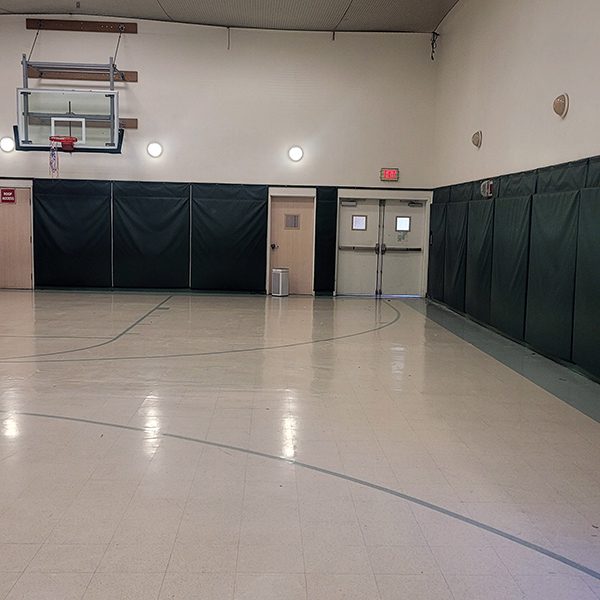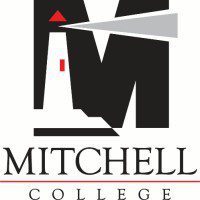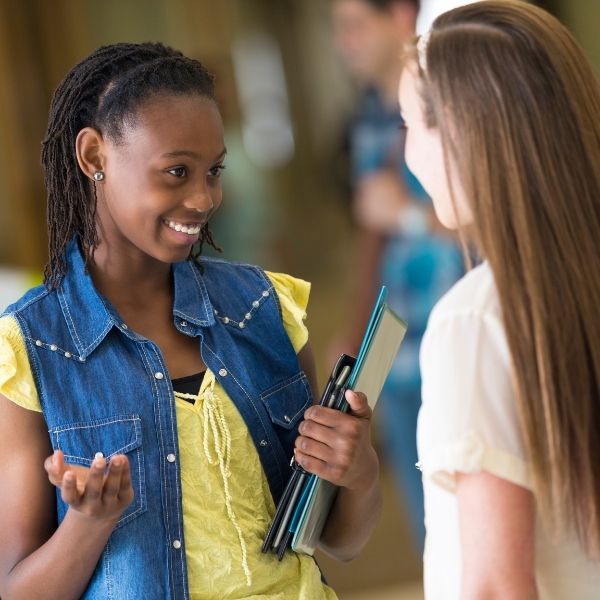SOCIAL SKILLS
About
SOCIAL SKILLS
Social communication and “Theory of Mind” deficits are core features of Autism Spectrum Disorder (ASD) and related neurodevelopmental disabilities. Theory of Mind is the ability to know that other people have different thoughts, feelings, and experiences than ourselves. In other words, our innate “drive” to think about other people and adjust our behavior for positive outcomes. Research has shown that, particularly for students with ASD, poor social skills can lead to under/unemployment, high college dropout rates, and less overall satisfaction with life in adulthood.
Social skills are thought of as everything a person needs to maximize their potential, outside of their intellectual capacity. Social skills are not just behaviors—a socially competent person is able to produce skill components (e.g. facial expressions, gestures) needed to effectively communicate, understanding the need to change/ modify behavior based on feedback, form accurate perceptions of others wishes/intentions, and have insight into what behavior may influence others’ decisions. This philosophy is what informs the social skills curricula at Village Glen—as a college prep school, we strive to equip our students with these lifelong abilities.
At Village Glen, social skills are taught as a core curricular course. Skills are explicitly modeled and taught in daily classes. Teaching modalities include didactic project-based learning, role-play, team-based activities, and video modeling. Homework is provided that is meaningful and interactive and/or creative. This provides opportunities for generalization of skills outside the classroom and to more naturalistic environments.
The curriculum also follows a developmental sequence – starting with attention and emotional regulation (including behavioral control) and continues through higher order theory of mind (e.g., empathy, negotiating, cultural awareness), and executive functions (e.g., problem solving, self-monitoring). In teaching these skills, Village Glen utilizes several evidence-based curricula including Social Thinking, PEERS, and Zones of Regulation, in addition to piloting novel lessons which are developed by the team of ASD experts at The Help Group. Progress monitoring tools are in place to determine students’ response to instruction and to evaluate the overall efficacy of the program.
About
SOCIAL SKILLS
Social communication and “Theory of Mind” deficits are core features of Autism Spectrum Disorder (ASD) and related neurodevelopmental disabilities. Theory of Mind is the ability to know that other people have different thoughts, feelings, and experiences than ourselves. In other words, our innate “drive” to think about other people and adjust our behavior for positive outcomes. Research has shown that, particularly for students with ASD, poor social skills can lead to under/unemployment, high college dropout rates, and less overall satisfaction with life in adulthood.
Social skills are thought of as everything a person needs to maximize their potential, outside of their intellectual capacity. Social skills are not just behaviors—a socially competent person is able to produce skill components (e.g. facial expressions, gestures) needed to effectively communicate, understanding the need to change/ modify behavior based on feedback, form accurate perceptions of others wishes/intentions, and have insight into what behavior may influence others’ decisions. This philosophy is what informs the social skills curricula at Village Glen—as a college prep school, we strive to equip our students with these lifelong abilities.
At Village Glen, social skills are taught as a core curricular course. Skills are explicitly modeled and taught in daily classes. Teaching modalities include didacticproject-based learning, role-play, team-based activities, and video modeling. Homework is provided that is meaningful and interactive and/or creative. This provides opportunities for generalization of skills outside the classroom and to more naturalistic environments.
The curricula also follows a developmental sequence – starting with attention and emotional regulation (including behavioral control) and continues through higher order theory of mind (e.g., empathy, negotiating, cultural awareness), and executive functions (e.g., problem solving, self-monitoring). In teaching these skills, Village Glen utilizes several evidence-based curricula including Social Thinking, PEERS, and Zones of Regulation, in addition to piloting novel lessons which are developed by the team of ASD experts at The Help Group. Progress monitoring tools are in place to determine students’ response to instruction and to evaluate the overall efficacy of the program.
A Letter From Village Glen's
Social Skill's Curriculum Co-Creator
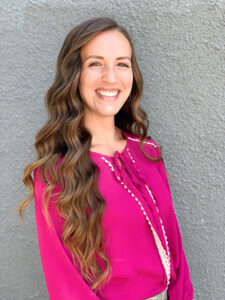
Megan Beardmore, PhD, NCSP
It was truly my honor and privilege to be able to co-design the social skills curriculum, which is one of the most unique characteristics of Village Glen. When writing the lessons, I pulled from various evidence-based materials and drew upon the knowledge of the autism experts at The Help Group. Using multiple modalities of instruction, my goal was to make social skills both meaningful and fun. From there, I provided training for teachers to ensure a strong working knowledge base of the theoretical underpinnings.
Then, the magic began! Our talented teachers bring these lessons to life by adapting the curricula to fit the individual needs of students in their classrooms. Most of the time, it was hard to just sit back and watch – I couldn’t help but to join in on the fun! Later, I provided feedback and collaborated with teachers in an effort to keep improving the lessons. The lessons are always evolving!
And the biggest reward of all was getting to see the students apply their learning outside of social skills time, whether it’s out on the yard or during clubs! I am so proud of our students and team at Village Glen!
A Letter From Village Glen's
Social Skill's Curriculum Co-Creator

Megan Beardmore, PhD, NCSP
It was truly my honor and privilege to be able to co-design the social skills curriculum, which is one of the most unique characteristics of Village Glen. When writing the lessons, I pulled from various evidence-based materials and drew upon the knowledge of the autism experts at The Help Group. Using multiple modalities of instruction, my goal was to make social skills both meaningful and fun. From there, I provided training for teachers to ensure a strong working knowledge base of the theoretical underpinnings.
Then, the magic began! Our talented teachers bring these lessons to life by adapting the curricula to fit the individual needs of students in their classrooms. Most of the time, it was hard to just sit back and watch – I couldn’t help but to join in on the fun! Later, I provided feedback and collaborated with teachers in an effort to keep improving the lessons. The lessons are always evolving!
And the biggest reward of all was getting to see the students apply their learning outside of social skills time, whether it’s out on the yard or during clubs! I am so proud of our students and team at Village Glen!
Social Skills
BY THE NUMBERS
Social Skills
PHILOSOPHY
For students with ASD and other social-communication challenges, a core deficit that underlies social-emotional development is Theory of Mind. Theory of Mind can be summarized as the ability to know that other people have different thoughts, feelings, and experiences than ourselves. A socially competent person is able to produce skill components (e.g. facial expressions, gestures) needed to effectively communicate, understand the need to change/ modify behavior based on feedback, and form accurate perceptions of others wishes/intentions. As such, we believe that social-emotional skills need to be taught explicitly, reinforced in a developmentally appropriate manner, and generalized to all environments. Measurement tools will be administered to determine the efficacy of the program.
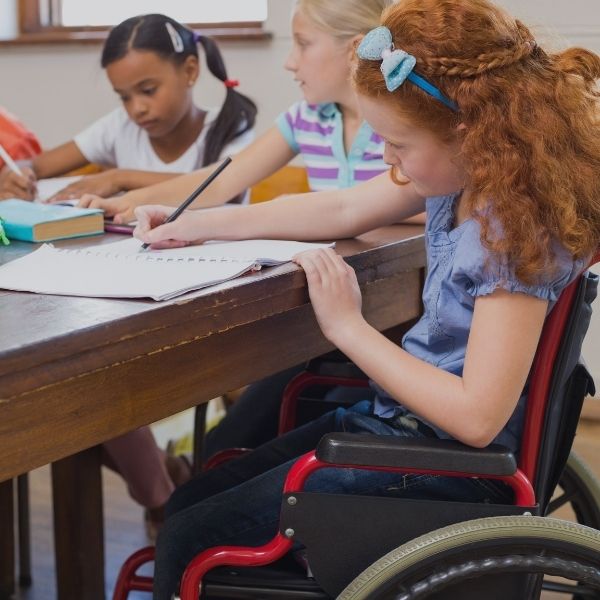

Social Skills
STRUCTURE
At all grade levels, there is a 45-minute class devoted to social skills each day. The structure of the classes fluctuate somewhat based on the topic and the developmental expectations of the students. Teaching modalities include didactic, worksheets, project-based learning, role-play, team-based activities, and video modeling. Homework is provided that is meaningful and interactive and/or creative. Social skills periods include the following:
- Movement/Get ready activity
- Breathing exercises
- Activity/lesson
- Mindfulness/reflection activity
Social Skills
SCOPE & SEQUENCE
For each of the core social skills listed below, we utilize various Evidence-Based curricula in addition to our own clinical expertise to develop our lessons. Teachers are able to move at the pace of the students. Social skills are listed in a developmental sequence, with the prerequisite skills taught first. Students are provided with homework so that parents know where their child is in relation to the scope and sequence below. There are times when we send home information sheets specifically for parents to promote generalization of learned skills to environments outside of school.
- Review Classroom Rules and Expected/Unexpected Behaviors
- Emotion Regulation (e.g., emotion identification, coping skills)
- Nonverbal Communication (e.g., eye gaze, body language)
- Pragmatic Language (e.g., conversations, understanding prosody)
- Abstract Language (e.g., figurative speech, humor)
- Theory of Mind (e.g., perspective taking, empathy)
- Friendship Skills (e.g., levels of friendship, conflict resolution)
- Executive Functioning (e.g., planning, organization)
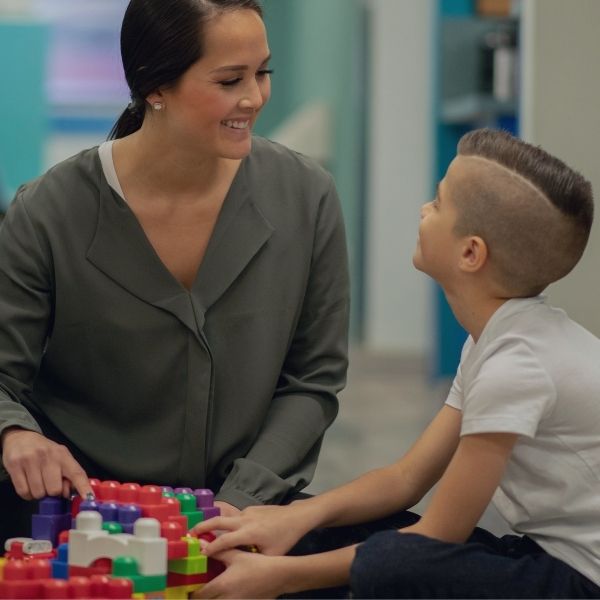

Social Skills
PHILOSOPHY
For students with ASD and other social-communication challenges, a core deficit that underlies social-emotional development is Theory of Mind. Theory of Mind can be summarized as the ability to know that other people have different thoughts, feelings, and experiences than ourselves. A socially competent person is able to produce skill components (e.g. facial expressions, gestures) needed to effectively communicate, understand the need to change/ modify behavior based on feedback, and form accurate perceptions of others wishes/intentions. As such, we believe that social-emotional skills need to be taught explicitly, reinforced in a developmentally appropriate manner, and generalized to all environments. Measurement tools will be administered to determine the efficacy of the program.

Social Skills
STRUCTURE
At all grade levels, there is a 45-minute class devoted to social skills each day. The structure of the classes fluctuate somewhat based on the topic and the developmental expectations of the students. Teaching modalities include didactic, worksheets, project-based learning, role-play, team-based activities, and video modeling. Homework is provided that is meaningful and interactive and/or creative. Social skills periods include the following:
- Movement/Get ready activity
- Breathing exercises
- Activity/lesson
- Mindfulness/reflection activity

Social Skills
SCOPE & SEQUENCE
For each of the core social skills listed below, we utilize various Evidence-Based curricula in addition to our own clinical expertise to develop our lessons. Teachers are able to move at the pace of the students. Social skills are listed in a developmental sequence, with the prerequisite skills taught first. Students are provided with homework so that parents know where their child is in relation to the scope and sequence below. There are times when we send home information sheets specifically for parents to promote generalization of learned skills to environments outside of school.
- Review Classroom Rules and Expected/Unexpected Behaviors
- Emotion Regulation (e.g., emotion identification, coping skills)
- Nonverbal Communication (e.g., eye gaze, body language)
- Pragmatic Language (e.g., conversations, understanding prosody)
- Abstract Language (e.g., figurative speech, humor)
- Theory of Mind (e.g., perspective taking, empathy)
- Friendship Skills (e.g., levels of friendship, conflict resolution)
- Executive Functioning (e.g., planning, organization)
Virtual Tour
OF THE SCHOOL
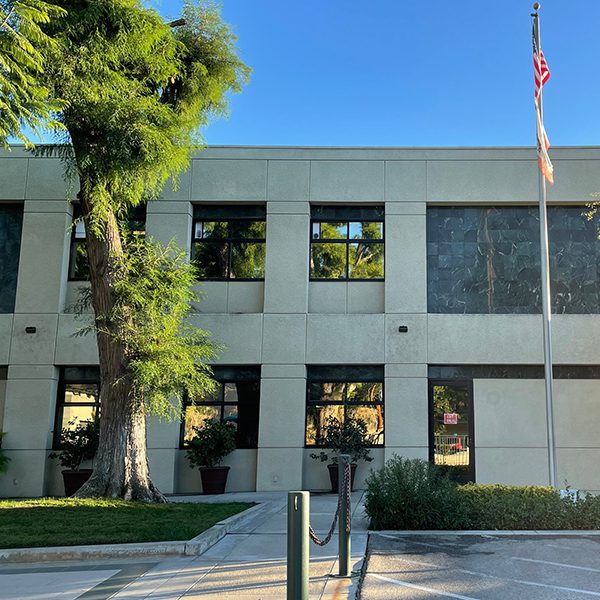
Village Glen Sherman Oaks Campus
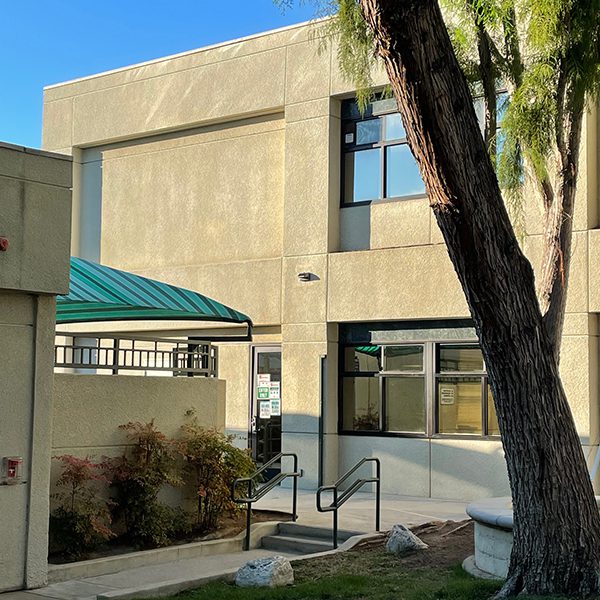
Village Glen Sherman Oaks Campus
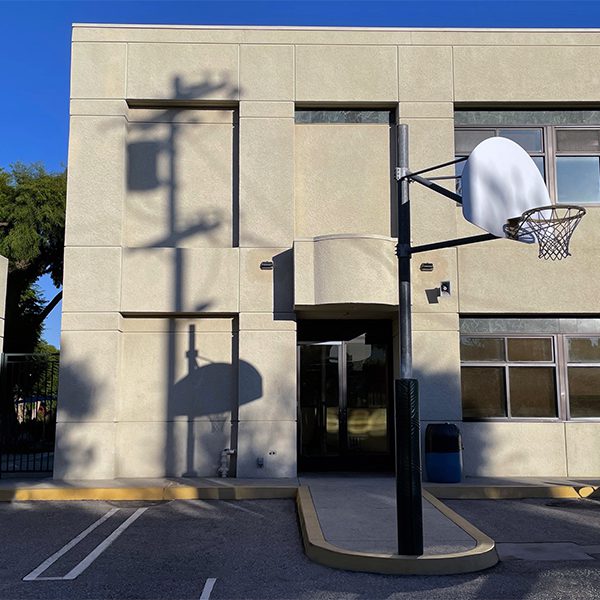
Village Glen Sherman Oaks Campus
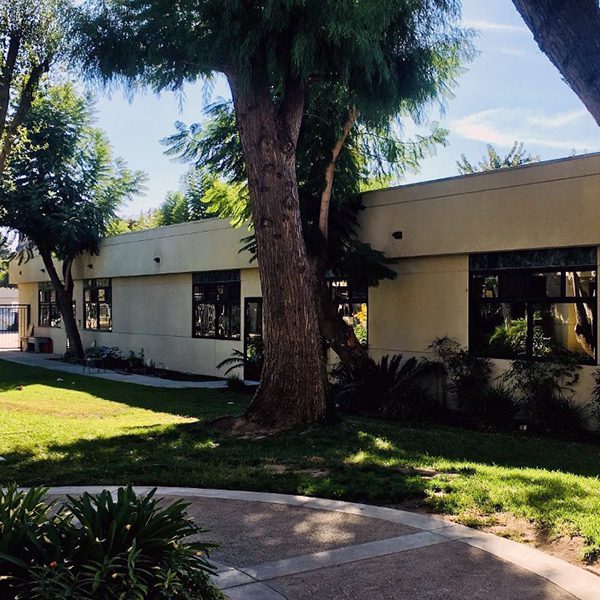
Village Glen Sherman Oaks Campus
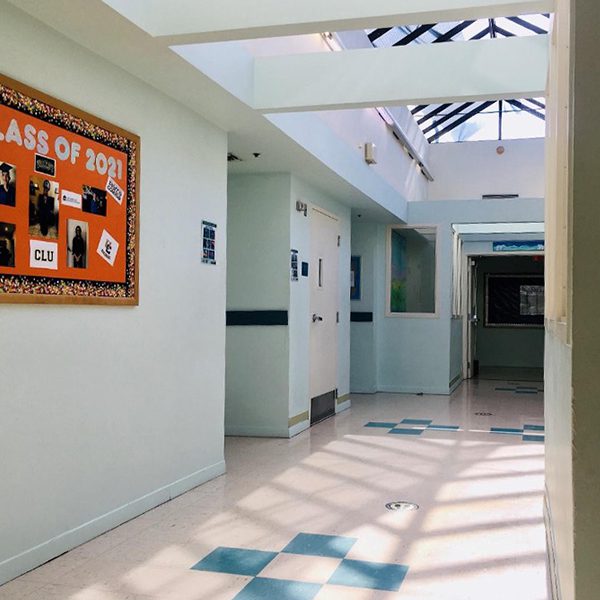
Village Glen Sherman Oaks High School Hallway
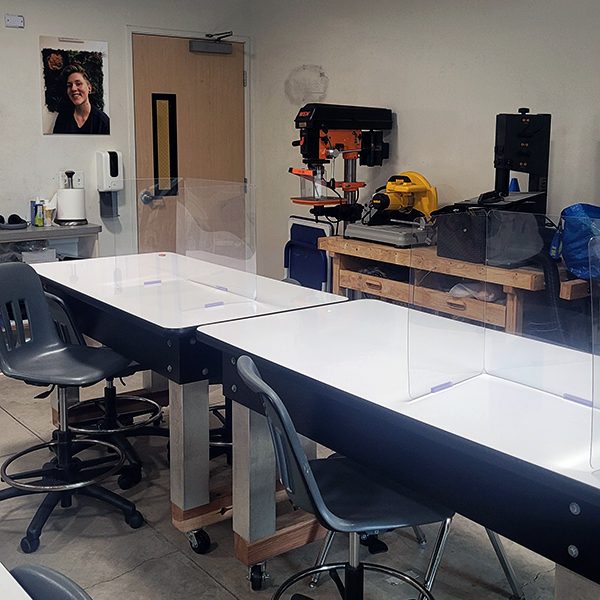
Village Glen Culver City Campus Classroom
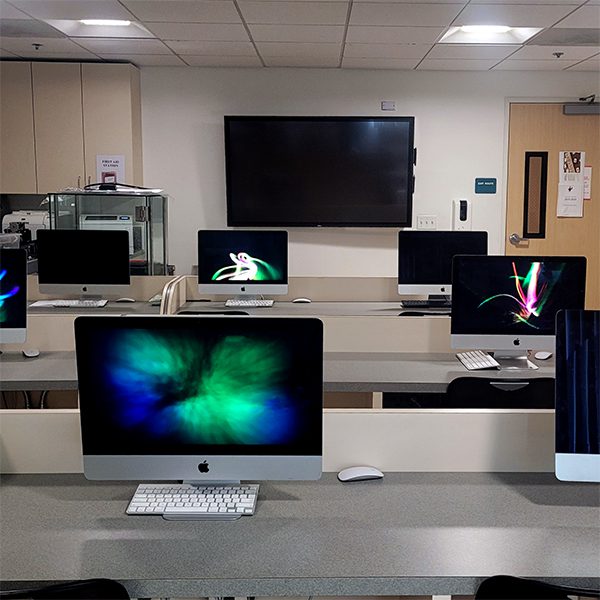
Village Glen Culver City Computer Room
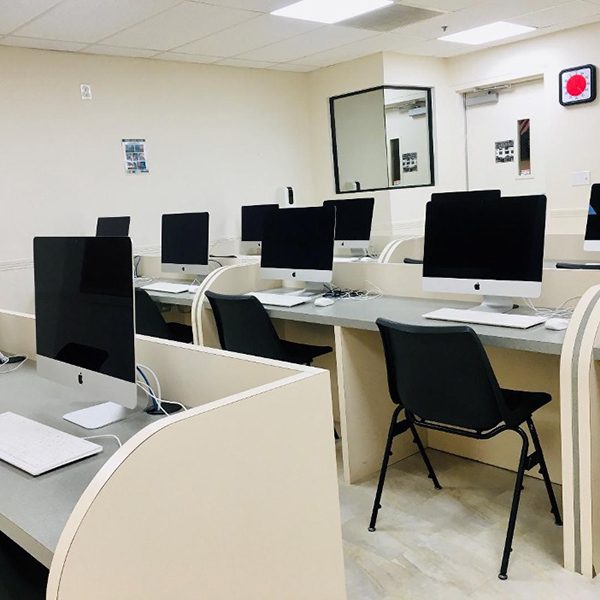
Village Glen Sherman Oaks Computer Room
